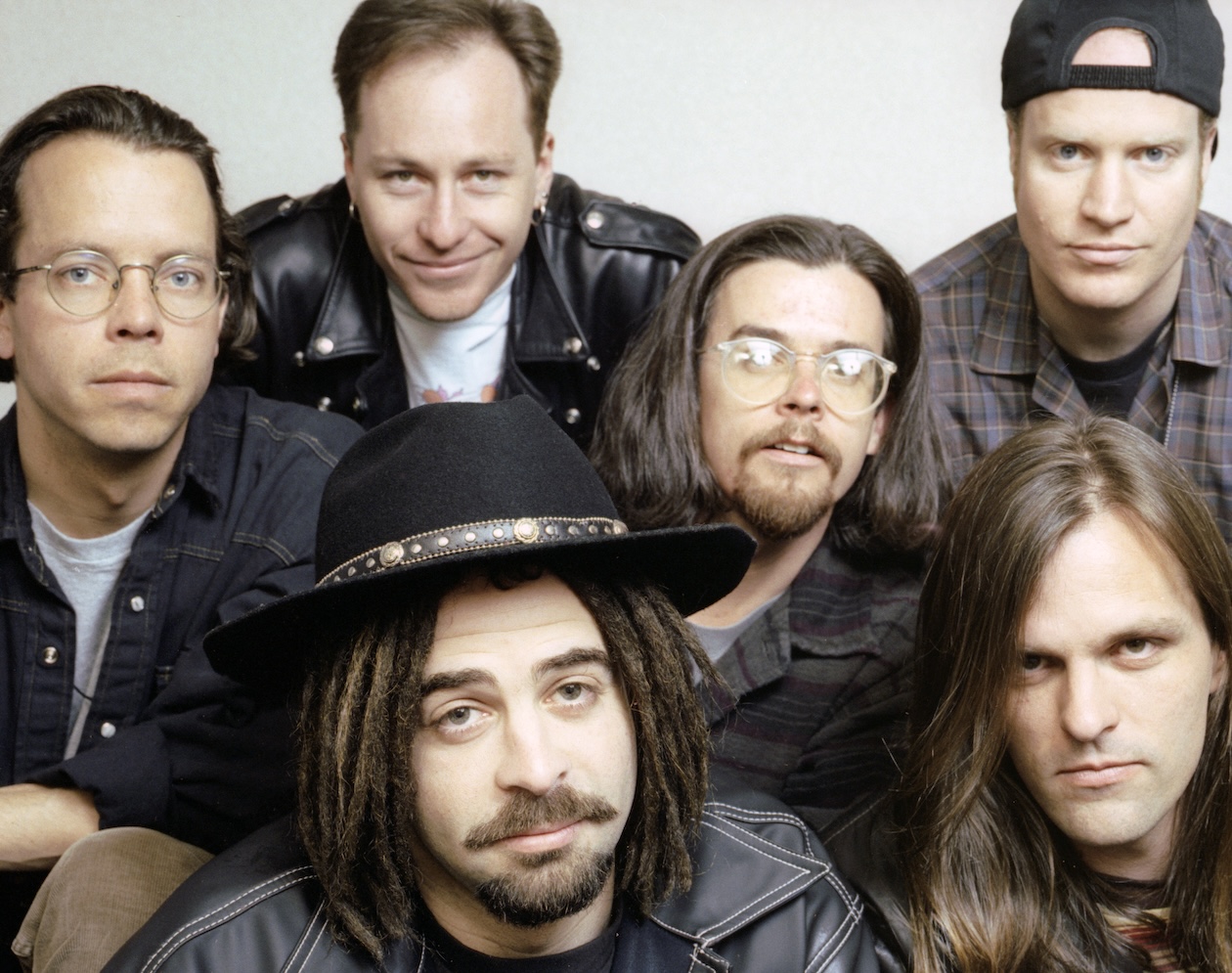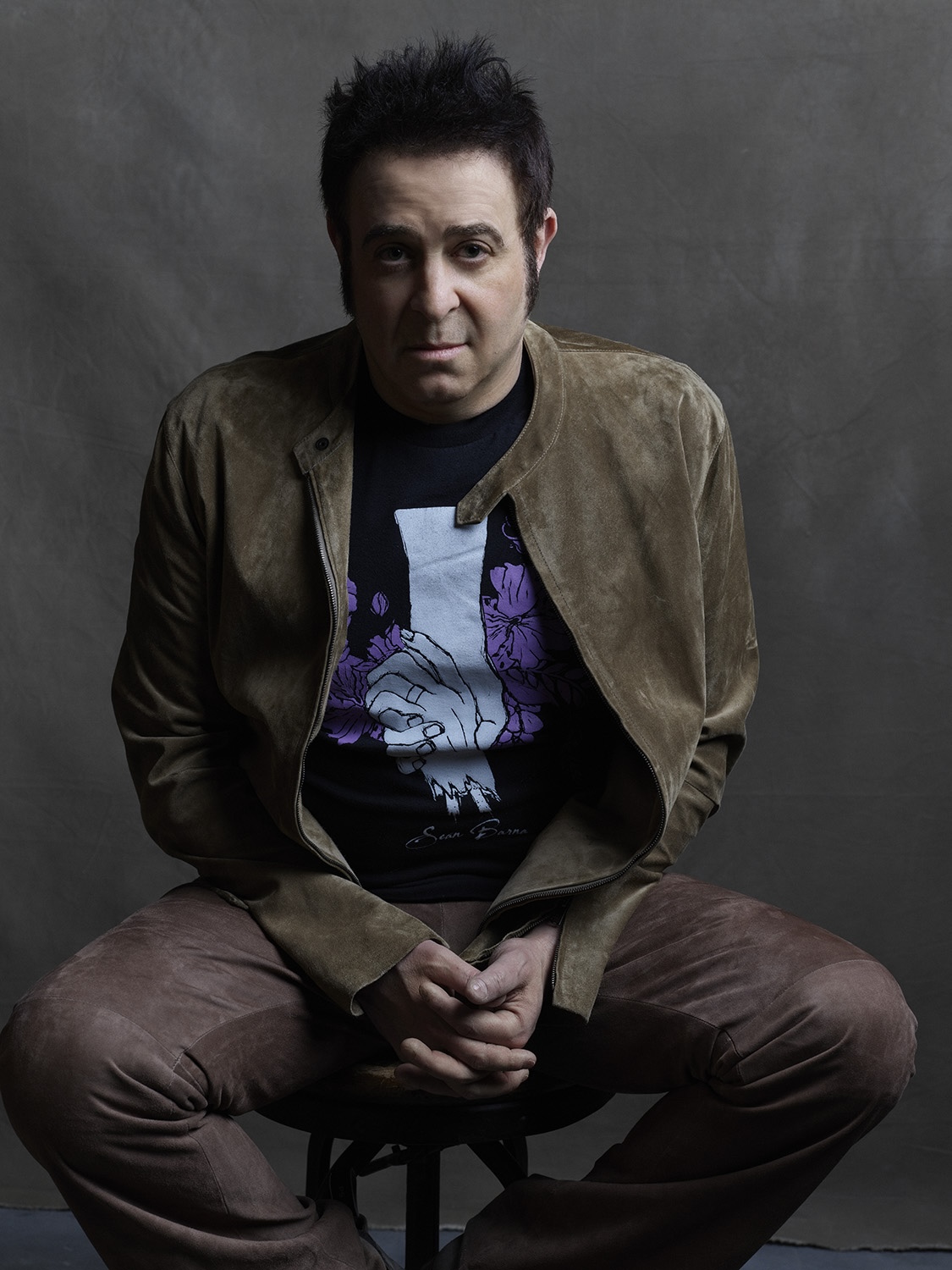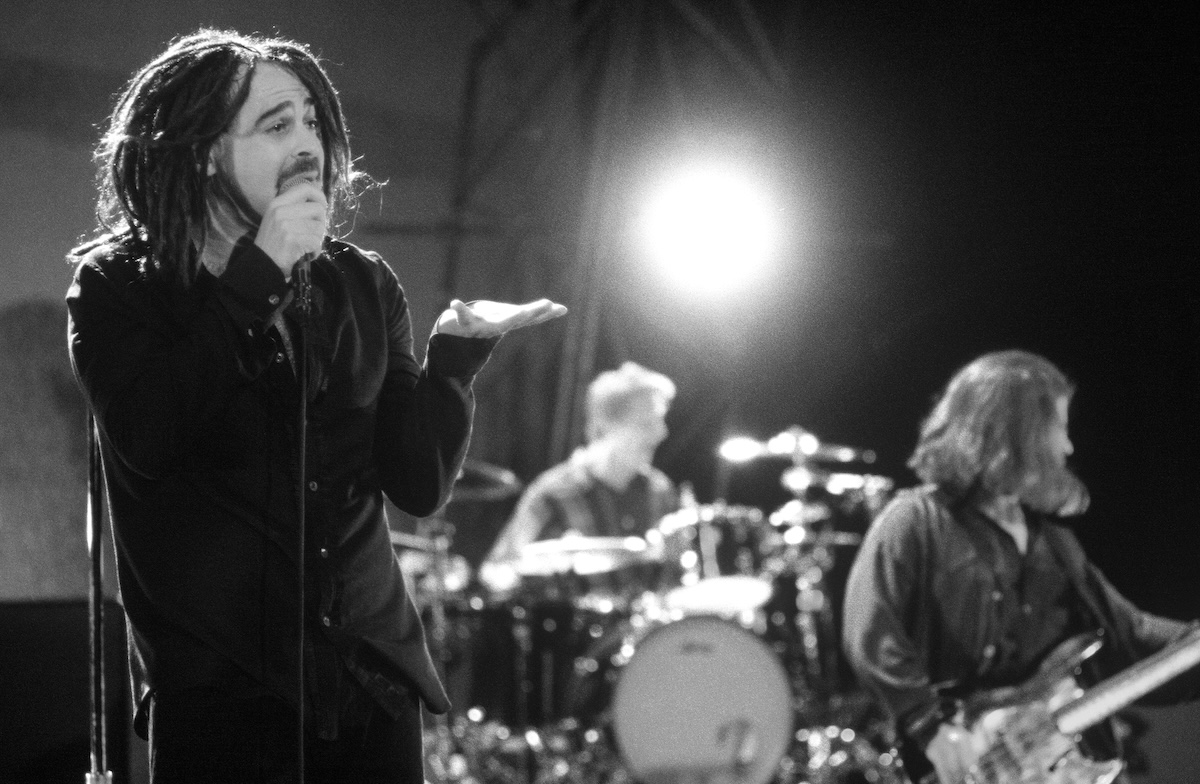“Connection is a hell of a thing…it’s the life jacket we all need,” says Adam Duritz, frontman of Counting Crows, a band that’s built their 30-year career through heartfelt live performances, emotional lyrics, and recurring, world-building themes in their songs.
Ironic, then, that growing up, Duritz says he didn’t know how to make connections with other people. “When I was younger, I was so stuck inside myself,” he tells me from his New York City home. A bunch of movie posters plaster the wall behind him—Seven Samurai and Smokey and the Bandit among them. He’s wearing a black Raspberries T-shirt, and sports a full black beard and a head full of dark brown hair, albeit thinner and shorter than the dreadlocks he was known for back in the ’90s.
More from Spin:
- The Who Announce Farewell Tour … Again
- Weezer, Janelle Monáe, Bright Eyes Bound For Bumbershoot
- The Songs That Made Me a Songwriter: Dan Wilson’s Sunday Night Ritual
“I had all this stuff I felt, and no way to express it or no way to connect with people because I didn’t talk to people very well, and I didn’t have any way to make connections. I felt so bound up inside myself.”
It wasn’t until later in life that he discovered he was suffering from depersonalization disorder, a condition that makes him feel emotionally detached from his surroundings, and even himself, which can last from minutes to sometimes months. Imagine feeling like you are seeing yourself from outside of your own body, or that everything around you is not real, and you don’t know how to stop it; that’s how Duritz feels a lot of the time. It can be a lonely existence
Duritz’s father served in the military during the Vietnam War and later became a doctor, which meant the family moved around a lot, only adding to his sense of isolation.
“It really separates you from the world in a lot of bad ways,” Duritz says. “I was always a new kid. I didn’t know people. I really had a lot of questions when I was younger, and I knew something was wrong with me. How am I going to take care of myself? How am I going to live a life? I didn’t really know how any of this was going to work.”
While he was in college, Duritz discovered, rather spontaneously, that he could write songs and play them. “Good Morning, Little Sister” was the first song he ever wrote, about his younger sister who was going through a difficult time as a teenager. For the first time in his life, he says he had a sense of self, of who he was: He was a songwriter.
“I had a feeling there was all this stuff inside me that mattered, that was important, but it just was there, like a big ball of feeling,” he says. “And then I write songs, and suddenly it’s this way that connects me to the whole world, and all the things inside me that were stuck because the mental illness had a purpose.”
Then, in 1993, two years after forming the Counting Crows with producer-guitarist David Bryson, the band—which by then consisted of Matt Malley on bass, drummer Steve Bowman, and on keyboards, Charlie Gillingham—exploded onto the music scene with its multi-platinum breakout album, August and Everything After. Then, in 1996, the group’s sophomore album, Recovering the Satellites, debuted at No. 1 on the U.S. Billboard 200 album chart, going double platinum.

The Counting Crows has released a number of live albums and compilations over the years, as well as five studio records, including its latest, Butter Miracle, The Complete Sweets!, the band’s first in seven years.
As Duritz describes it, the new record is “so rock and roll.”
Not to be confused with the band’s 2021 EP, Butter Miracle: Suite One, Butter Miracle, The Complete Sweets! is a sequel of sorts to its predecessor. Duritz tells me he wrote Suite One as a challenge to himself, to see if he could write one long-playing, continuous piece of music. The result was, well, a suite of four songs: “The Tall Grass,” “Elevator Boots,” “Angel of 14th Street,” and “Bobby and the Rat-Kings.” But it was also his answer to how people listen to music now.
“I don’t know if anyone’s listening to whole records,” says Duritz. “People are digesting music in different ways anyway, so to me, it felt like since I was moved to challenge myself to make this 20-minute piece of music where the songs all flow together, it was just that, you know? But I really loved how it turned out. I thought well, it does make sense to make another half to this, though.”

The Complete Sweets includes remixed versions of the songs on Suite One, along with five new songs, including the band’s latest singles, “Spaceman in Tulsa” and “Under the Aurora.”
But the road to get there wasn’t so easy. Going back to his friend’s farm in West England, where he wrote Suite One, Duritz composed the other half of the album and on his way home, he stopped in London to sing backing vocals on the Gang of Youths’ album, Angel in Realtime. When the band sent him the finished product, he thought it was one of the best records he had heard in a long time.
“I was so blown away listening to it, and I had this realization that these songs on their record were significantly better than the stuff I’d written,” he says. “The stuff lacked a sort of passion that these songs had and they were missing something, and I needed to go back to the drawing board.”
So, that’s what he did. And through the process of reworking his new songs, Duritz pushed himself like he’d never done before.
“I’d never really had this experience before of thinking I’d finished something and then realizing it wasn’t good enough,” he tells me. “They were a little more ambitious musically, to the point where I couldn’t play them myself. Usually, I can tell a song is good because I can just play it for myself. But these were really difficult for me to play. I had them in my head, but I couldn’t recreate them.”
As much as he loved his new material, he lacked the confidence to share it with the rest of the band.
So he sat on it for two years.
Then a breakthrough happened. He wrote “With Love, from A-Z.”

“I knew that was great. I loved that song,” he says. “And it felt like, in a way, an updating of ‘Round Here.’ Whereas that’s a real statement of a person and where they are in life, just as a kid getting ready to go out into the world and make something. And to me, ‘With Love, from A-Z’ was a statement of where I am today. And I really felt it worked and it was very powerful.”
With a renewed sense of confidence, Duritz invited band members David Immerglück (guitar), Jim Bogios (drums), and Millard Powers (bass) to his house to play his new songs.
Two weeks later, along with the rest of the group, Duritz ripped through the tracks in the studio in 11 days. Then, together with Chad Blake, the Counting Crows mixed the new songs, combining them with the remixed Suite One tracks, making a complete, nine-track LP.
“So the Suite [One] sounds different now than it did originally because we remade it to match the first half,” he says. “The two pieces fit together really well. It was a different experience…”
While the title of the album, Butter Miracle, The Complete Sweets!, has a bit of a nonsensical tone to it, the themes that run through it are quite serious and incredibly relevant to what’s going on in America now.
“Boxcars,” for instance, is about the deportation of immigrants. “Under the Aurora” was inspired by the murder of George Floyd during the pandemic. Other songs cover the objectification of women and trans kids in sports.
“A lot of the stuff on this record is about people in isolation and people on the outside looking in, finding ways to get through life. Sometimes it works out because we can pick up a guitar,” says Duritz, referring to himself.

Duritz says that after more than 30 years together, he and the band are still fascinated with the process of making music, exploring new ways to perform older songs live, never replicating the same old playlists during their shows, and, as with the group’s new album, finding new ways to write songs.
“We enjoy playing music,” he says. “I love being in a band. I don’t want to be a solo artist. I like the jazz of being in a band. I think we matter to each other. I’ve watched my friends fuck up great bands. I don’t want to do that. There are a million ways to justify why things should fall apart. You just have to decide whether that’s okay to let it happen.”
The musical landscape is a lot different than when August and Everything After debuted, when the only option to hear it was to buy the album at the record store or borrow (or copy) it from a friend. Exposure meant getting a single played on the radio or creating a music video for MTV. The rise of streaming music, of course, has changed all of that; it’s all the music you want, anytime you want, making it more difficult for artists to stay relevant, to build a fanbase, to connect with an audience. The Counting Crows are still passionate about being in a rock ‘n roll band.
“I’m 30-some-odd years into a career here; a career that lasts five minutes for most people, if it even happens,” Duritz says. “And we’re still a band and we’re still going on tour. And it’s still cool. There are bands that are bigger and, it’s not effortless, but it’s still happening. That thing that saved me when I was a kid is still saving me now. It’s my world, and I love it.”
To see our running list of the top 100 greatest rock stars of all time, click here.



